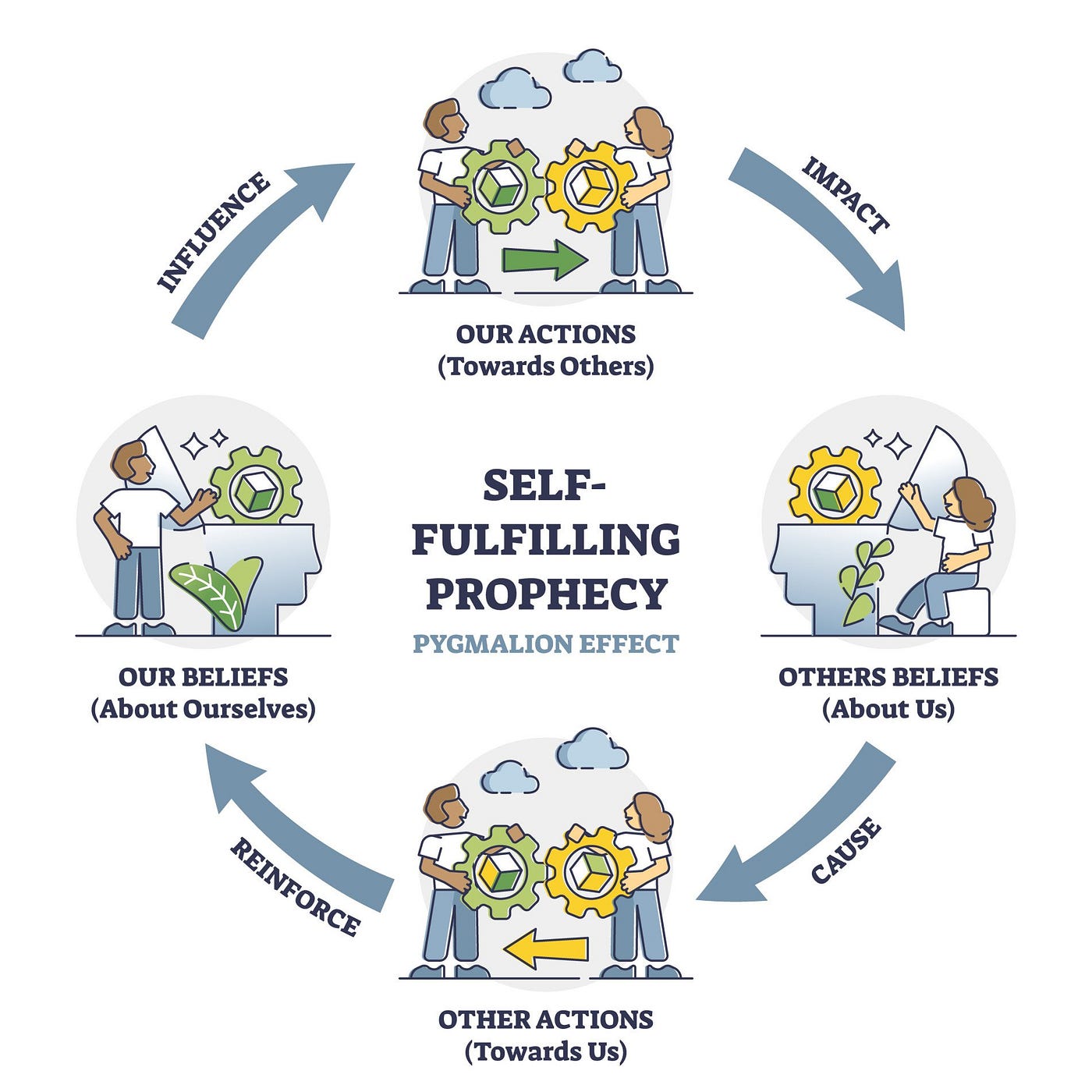Have you ever had this experience?
When you were at school, a word of encouragement or praise from your teacher could make your academic performance improve by leaps and bounds, as if you had a new lease of life.
At work, if your boss praises you in public, you will feel full of energy, your work efficiency will soar, and you may even achieve better results.
In life, your parents’ affirmation and support have also made you better and better, and more and more confident.

Why can a few simple words, some attention and recognition bring about such a huge change? In fact, there is a psychological phenomenon behind this – the Rosenthal effect. Today, let’s talk about this amazing psychological law and how it can help us become more confident and better.
1. What is the Rosenthal effect?
In 1968, the famous American psychologist Robert Rosenthal and his assistant conducted an experiment. They went to an elementary school and claimed to be conducting a test on the “future development trends of students”. After the test, they solemnly took out a list that said “the most promising students” and solemnly handed it to the principal and teachers. At the same time, they emphasized that the list must be kept confidential and only the classroom teachers should know, so as not to affect the results of the experiment.
Eight months later, a miracle happened! Not only did the students on the list make rapid progress in their academic performance, but they also made significant improvements in their character and social skills. Could it be that these children are really geniuses? The answer is no. In fact, the list was randomly selected and not scientifically screened at all.
So what made these children’s performance take a qualitative leap?
The secret lies in the teachers’ changed attitude. Because they believed that these students had potential, the teachers had higher expectations for them and gave them more attention and encouragement. The children felt the teachers’ expectations and subconsciously believed that they were “good people”, so they performed better and better. This phenomenon was later called the “Rosenthal effect”.
To test this theory, a German researcher conducted a similar experiment. He randomly selected 20 ordinary students from a school and told all the teachers and students that these people were members of an “elite class” with superior IQs who would certainly become great in the future. Twenty years later, the researcher found that these 20 students had indeed become leaders in their respective fields. The initial “lie” had actually become a reality!
This is the core of the Rosenthal effect: people’s expectations, suggestions and beliefs can have a profound impact on others. Simply put, what you believe, you will see; what you expect, you may get.
2. How can I use the Rosenthal effect to become better?
Since the Rosenthal effect is so powerful, how can we apply it to our lives and work to become more confident and better? Here are three practical ways:
Method 1: Give yourself positive mental suggestions
According to the Rosenthal effect, our beliefs and expectations will subconsciously affect our behavior and results. If you believe that you are smart and talented, you will unconsciously look for evidence to support this belief, and become more positive and optimistic. On the contrary, if you always doubt yourself and think you are not capable, then negative thoughts will also be constantly reinforced, leading to a lack of confidence.
Therefore, in our daily lives, we must learn to give ourselves positive mental suggestions. For example:
When you repeatedly instill positive beliefs in yourself, your subconscious mind will accept this information and reflect it in your actions. Eventually, you will find that goals that seemed unattainable are actually not difficult to achieve.
Method 2: Stay away from people who put you down
In life, there are always people who like to belittle others and undermine their self-confidence. They may be colleagues, friends, or even family members. Sometimes, their words may seem innocent, but they can actually be very damaging. For example
These words may sound like they are “for your own good,” but they are actually planting negative thoughts in your mind. If you are treated like this over a long period of time, you may gradually lose confidence and feel that you really are not good enough.
Therefore, we must learn to build a “firewall” for ourselves and stay away from people who always express negative energy towards you. Try to surround yourself with friends who have positive energy and spend time with people who appreciate and support you. Only by reducing negative psychological suggestions can we protect our self-confidence and become more positive and proactive.
Method 3: Make good use of the Rosenthal effect to get along with others
American psychologist William James once said: “The deepest desire of human nature is to be appreciated.” Everyone wants to be recognised and praised by others. Therefore, when getting along with others, especially when educating children or managing a team, we can cleverly use the Rosenthal effect to stimulate the potential of the other person.
For example:
If you are a parent, you can say to your child, “I believe in you!” or “You’re really great!” on a regular basis. This way, your child will feel your trust and work even harder.
If you are a leader, you can praise an employee’s work in public to let him feel your recognition and be more motivated to complete the task.
However, it should be noted that the Rosenthal effect also has certain limitations. If you have high expectations of someone, even far beyond their capabilities, it will instead cause them tremendous psychological pressure, which will be counterproductive. Therefore, when using the Rosenthal effect, you must strike the right balance, giving encouragement while also respecting the other person’s actual abilities.
3. The Rosenthal effect: the power of controlling the subconscious
Leadership expert Sir John Whitmore once said a classic line: “I can control what I am aware of, but what I am not aware of controls me.” This quote reveals a truth: the actions of each of us are largely driven by the subconscious.
The Rosenthal effect is effective precisely because “expectations” and “suggestions” can directly influence our subconscious. Through positive mental suggestions, we can invoke the power of the subconscious, enhance self-confidence, and improve our sense of self-control, so as to better achieve our goals.
Therefore, we should learn to make good use of the Rosenthal effect, whether we are dealing with ourselves or with others. With positive expectations and sincere trust, we can ignite our inner potential and achieve a better life.
Summary
The Rosenthal effect tells us that expectations and beliefs have incredible power. They can not only change a person’s behavior, but also shape a person’s destiny.
Remember, your expectations determine your world. May we all use positive expectations to light up our own futures and those of others!

